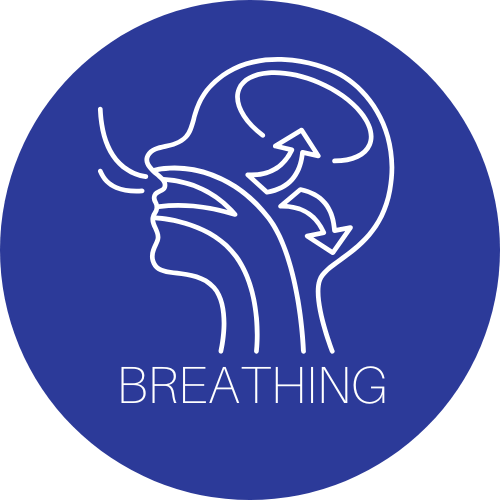Unlock Mental Clarity Through Breath-work: Build Resilience and Emotional Health
- Patricia Maris

- Jun 10, 2025
- 5 min read

I.Introduction
Have you felt overwhelmed or disconnected, as if life's constant demands are pulling you away from your true self? The pressures of multitasking and productivity can leave us feeling unanchored and lost without a sense of direction. What if the key to regaining mental clarity lies as close as your next breath?
Breath-work, the seemingly simple act of intentional breathing, is a powerful tool for reducing stress, balancing emotions, and enhancing emotional resilience. It doesn't require expertise in yoga or meditation; it's accessible to everyone. Research shows that breathwork techniques can help you reconnect with your inner compass, guiding you toward mental clarity and resilience. This post explores how breathwork transforms your wellbeing, one mindful breath at a time.

II.Experience the Benefits of Breath-work for Improving Mental Clarity and Building Resilience
Breathing isn't just about surviving; it's an essential lever for emotional stability and focus. Studies in Scientific Reports have shown that intentional breathwork can significantly reduce stress and improve mood, making it a game-changer for enhancing mental clarity and resilience.
When practised regularly, breathwork helps your mind stay centred during challenges, offering clarity even under pressure. With structured breathing, you can align your focus, manage stress with greater ease, and build resilience over time.

Your breath holds the power to reshape your emotional and mental state. Here's how it bridges the gap between overwhelm and calm:
Patterns of Breath Reflect Mindset
When life feels chaotic, your breath may be shallow and erratic, which can amplify stress. Deep breathing, however, rebalances your mental state by calming the mind and creating steady thoughts.
The Alignment Between Breath and Clarity
Each deep inhale reconnects you to the present moment, helping you align with your values and long-term goals. Breathing intentionally reminds you of who you are at your core, especially during moments of overwhelm.
A Quick Reset through Breathing
Even a three-minute breathing routine can detoxify your body and reduce physical stress symptoms. Controlled breathing lowers your heart rate, paving the way for mental clarity and emotional stability.

IV.Five Steps to Build Resilience Through Focused Breathing
1. Reconnect with Your Authentic Self
Your breath mirrors your mental state. Feeling hurried? You're likely breathing shallow. Feeling calm? Your breath is slow and steady. Begin your practice by reflecting on your best self and how your breathing shifts under stress.
Ask yourself, "Who am I when I'm thriving?"
Observe your breathing patterns during stressful moments versus calm ones.
Intentional breathwork bridges the divide between these states, fostering emotional balance.
2. Ignite Passion with Mindful Breathing
Think about the last time you truly enjoyed your work or daily tasks. Passion often gets buried under stress, but controlled breathing can reignite that fervour.
Try using visualisationvisualisation with each inhale and exhale to focus on your goals.
Controlled breathing stimulates creativity, enabling you to view challenges from fresh perspectives.
3. Three-Minute Mental Reset Breathwork Routine
This quick practice ensures you stay grounded, no matter how hectic your schedule gets.
Take two deep breaths.
Follow with a shorter "sip breath," holding it for five seconds.
Release stress with a sigh on the exhale.
Repeat this exercise several times a day to reset your focus and build emotional resilience.
4. Build a Daily Breathing Habit
The key to reaping the benefits of breathwork is consistency. Over time, this practice transforms how you manage stress, enhancing overall resilience.
Combine breathwork with your existing daily routines, such as before meals or during commutes.
Dedicate five minutes at the start and end of your day to deep, intentional breathing.
Use visual cues such as sticky notes or reminders to encourage regular practice.
5. Breathe for a Stronger Tomorrow
Chronic stress impacts not just your mental health but also your physical health, contributing to issues like hypertension and cardiovascular disease. Breathwork serves as a first line of defence against stress-induced strain.
Deep breaths flood your cells with oxygen, boosting energy and immunity.
Exhales release toxins from your body, enabling better overall health.
Pairing mindfulness with breathwork amplifies these outcomes, reducing cortisol levels and improving sleep quality for long-term wellbeing.

V.The Science Behind Breath-work and Mental Health
Structured, consistent breath-work effectively reduces symptoms of anxiety and depression. Unlike time-intensive therapies, simple breathing exercises are accessible and scalable, making them an invaluable tool for those seeking low-cost mental health support.
Research shows that regular breathwork not only enhances individual wellbeing but also positively influences those around you. A centred, calm mindset exudes clarity and makes you a force for positivity in your personal and professional life.

VI.Transform Every Breath into a Moment of Clarity
The beauty of breathwork lies in its simplicity. You don't need advanced equipment or hours of practice. Start small by dedicating just three minutes a day to your breathing routine, as described above.
Each breath is an opportunity to align your mind, body, and emotions. With every inhale, you reconnect with your inner compass. With every exhale, you release what no longer serves you.
Breathe intentionally, and you'll not only rediscover a sense of purpose but also gain the resilience to navigate challenges with strength and clarity. Your path to inner calm and focus begins here and now.
VII.Take Action
Try practising the three-minute reset daily for the next week. Notice how it impacts your mental clarity, stress levels, and overall sense of self. Use this simple yet powerful tool to reclaim your calm and focus.

Remember: Your magnetic North lies within you. All it takes to unlock it is your next breath.
Reference
Kamath, J., et al. (2022). Effects of Structured Breath-work Training on Stress Management and Mental Health Outcomes Scientific Reports, 12(1), 27247. https://doi.org/10.1038/s41598-022-27247-y




Comments